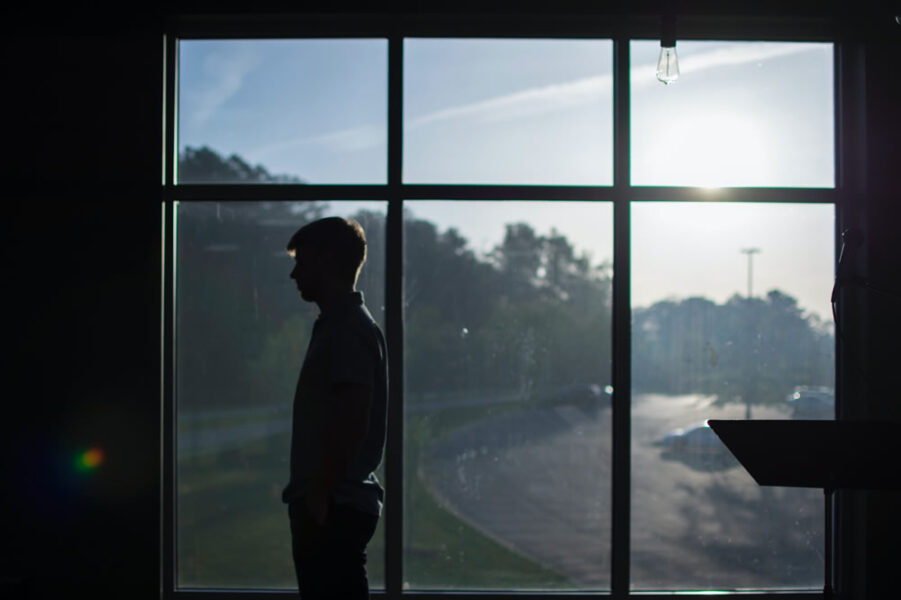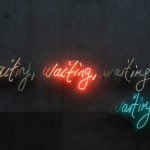
I found Dore’s article (below) on learning to wait – interesting.
The mental gymnastics involved in “waiting” can be intense. Those times when you vulnerably wait for good or bad news. Sometimes you are handed a reprieve and then you wait for something else – and so it goes.
Frankly, I am not as good at waiting as I used to be: I was quite patient – even philosophical – and the patience served me well.
Now?
Let’s just say “buck up” is one of my current mantras.
So dear readers – do buck up and enjoy your Sunday!
Love,
Vicki P
On waiting for things
Madeleine Dore
Lately, I’ve found it harder than usual to answer the question of what I do.
The question has always made me a bit squeamish, but recently I’ve felt stuck.
I do things, granted. But the simple truth is—I’m waiting.
What I’m doing next and where I’ll be doing it hinges on one particular outcome; in the meantime, everything is pending.
“Nothing to be done”
There are many ways to interpret the Samuel Beckett play Waiting for Godot, but I think the opening line, “nothing to be done”, speaks to both the futility and endurance of waiting. At times, there is nothing we can do but hold our nerve and wait.
Waiting is an inevitable fact of life and comes in many flavours. Waiting is boring, it’s exhausting, it’s marbled by uncertainty. And in the case of Waiting for Godot, at times, it is absurd.
Of course, the stakes also vary. Sometimes we wait for the bus or a text from a crush. Sometimes for the outcome of an application. Sometimes for biopsy results.
Some people seem to bring a sense of optimism and calm to waiting, whereas others descend into a fog of anxiety. To wait is to acknowledge that certain things are out of our control. There is nothing to be done, so what we do instead is worry.
The worry in the waiting
When something pending has the potential to be life-changing, waiting is often laden with worry.
Researcher Kate Sweeny has delved into the psychology of waiting, revealing that such periods can be more distressing than facing bad news. Waiting can increase distress, disrupt sleep and negatively impact emotional regulation.
Waiting also distorts our time perception, creating a downward spiral. If we are in a negative state due to waiting, we tend to perceive time as moving slowly, expanding the perceived length of said waiting period and creating more distress. As we experience more distress, we tend to perceive time as moving more slowly, and so on and so on.
So how do we wait well when worry has us spiraling?
It was interesting to read Sweeny’s counterintuitive findings. While there are some approaches to waiting that provide relief¹, many coping strategies are largely ineffective for navigating this type of uncertainty.
While this seems discouraging, I found solace in the reminder that discomfort is a common part of waiting. It may be that accepting the fact that waiting is challenging is the very thing that will bring some ease to the experience.
Interestingly, those who experienced a challenging waiting period marked by anxiety, rumination, and pessimism reported more relief and positive responses to good news, and constructive responses to bad news. In other words, having a hard time while we wait might set us up better to embrace or withstand whatever comes our way.
This has helped me manage my own waiting worry. Knowing that this background hum of anxiety might have a payoff brings a sort of pre-emptive resilience. It’s not to say I’m committed to expecting the worst, but rather I can find positives even in the face of failure or rejection.
I’ve made a list of backup plans I feel excited about and I’ve embraced setting them aside for now. This small act offers me a sense of control over the future in a time of uncertainty. I may not be able to control what happens, but for now, I can accept the worry and look to what I can.
Waiting for your life to begin
The thing about waiting for news is that it has alerted me to all the ways I’m waiting.
There’s a passage by Shauna Niequist in Cold Tangerines that says, “I have always, essentially, been waiting. Waiting to become something else, waiting to be that person I always thought I was on the verge of becoming, waiting for that life I thought I would have. In my head, I was always one step away.”
I’ve long been waiting to be the version of myself I want to be. The one that gets up early. The one who reads philosophical texts every evening for fun. The one who writes every day, who has found her place, who runs marathons, who throws elaborate dinner parties.
Niequist goes on to say, “And through all that waiting, here I am. My life is passing, day by day, and I am waiting for it to start. I am waiting for that time, that person, that event when my life will finally begin.”
We don’t become the person we want to be by waiting—we become the person we want to be by working with what we’ve got now. To quote Charles Bukowski, “I was waiting for something extraordinary to happen but as the years wasted on nothing ever did unless I caused it.”
When we are waiting it can feel like our life is on pause, but sometimes we put our life on pause by waiting. In that instance the question to ourselves becomes, what are you waiting for?
Getting out of the waiting room
One thing I take from Waiting for Godot is that waiting for other people is particularly futile.
There have been times that I’ve sat in the waiting room of someone else’s life—waiting for a reply, waiting for their decision, waiting for them to arrive. During such times, I have been living on someone else’s time, and eventually, what has eroded is a firm grasp on my own.
Such experiences have taught me the subtle differences between the waiting we need to bring patience to, and the waiting we need to be wary of losing ourselves to.
Yes, there will inevitably be waiting, but our entire sense of being doesn’t have to be wrapped up in what, or who, we are waiting for.
In my instance, I may be waiting to know if I’m shifting my life, but there are plenty of things happening now that I don’t have to wait for—I can exercise, I can write, I can read, I can connect, I can pitch ideas, I can do so many things.
And I can feel good irrespective of how things unfold. This echoes what Sweeny’s research found with managing expectations as the outcome grows nearer—the more space you put between the result and your sense of self, the easier the outcome may be.
Of course, this is easier said than done when what we are waiting for is medical results, for instance, but for me, it’s been crucial to remember that my worth is not contingent on this one outcome, or another person. It’s about finding something else in our lives that can make us feel good as a counterbalance to the uncertainty, dread or pause we are experiencing.
What we learn from the waiting
Even in its discomfort and frustration, there is a lot we can learn from waiting.
While the worry of waiting can sometimes fling us into the past or future, the act of waiting itself is present tense and can pull us into the moment—and illuminates what’s important.
While waiting, all possibilities are alive. We can imagine the life where we do and the life where we don’t, and in doing so, we take stock of where we are and what we value.
Periods of waiting can be a great time to daydream about what you want—to think about what life will be like when this thing happens, or even alternatives if it doesn’t.
As Jason Farman wrote for Psyche, “Waiting, as represented by silences, gaps and distance, allows us the capacity to imagine that which doesn’t yet exist and, ultimately, innovate into those new worlds as our knowledge expands.”
We learn what we want in the waiting, but we also learn how to be patient.
Someone once told me that patience is composed of three things—perseverance, peace and acceptance.
And I think that’s what we do in the waiting. We persevere with the uncertainty. We find a way to find some peace in the pondering and dreaming, in the what if, and the not yet. And we come to accept that whatever will be will be.





























